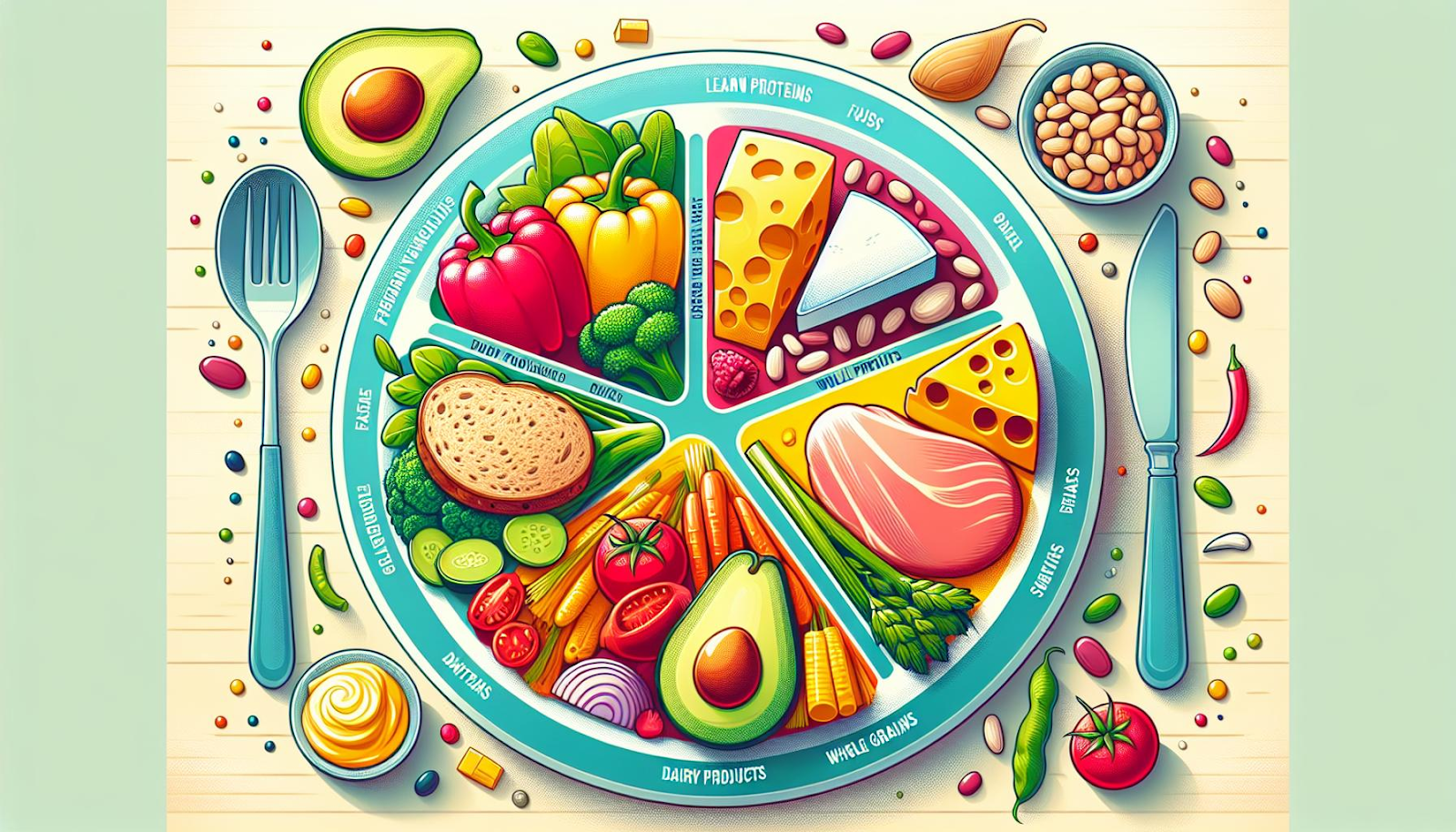Stepping into the world of nutrition can feel like exploring a labyrinth. But what if it’s simpler than you think? This article will help you unravel the basics of nutrition, making it easier for you to make informed decisions about your diet.
Ever wondered why some foods make you feel energised while others leave you feeling sluggish? Or why your body craves certain nutrients? You’re about to discover the answers.
With a blend of science-backed facts and practical tips, you’ll gain a fresh perspective on what you eat and why it matters. So, buckle up for a journey into the intriguing area of nutrition. It’s time to empower yourself with knowledge and transform your relationship with food.
Understanding Nutrition Basics
To navigate the labyrinth of nutrition, comprehension is your torchlight. Here, you’ll investigate deeper into the relevancy of nutrition and key nutrients.
The Importance of Nutrition
Your daily meals, it’s more than just satisfying hunger. They serve as the fuel driving your body’s functions. The right nourishment ensures that your body performs at its peak – digesting the food you eat, fighting off diseases, maintaining a healthy weight, and even impacting your mood. Every sip and bite matter. The crux? Select food offering maximum nutritional benefit, not just empty calories.
Key Nutrients: Macronutrients and Micronutrients
To ace the game of nutrition, learn about your allies – Macronutrients and Micronutrients. Macronutrients, including proteins, fats, and carbohydrates, are the heavyweights contributing greatly to your daily energy intake. On the other hand, micronutrients, such as vitamins and minerals, are minor in quantity but major in impact, supporting growth, development, and healthy body functions. Remember, variety is the potion, mixing different nutrient-rich foods ensures that your body isn’t missing out.
The Role of Vitamins and Minerals
Diving deeper into the world of nutrition, let’s shed light on the role of vitamins and minerals. These key micronutrients play an essential part in maintaining your overall health.
Understanding Antioxidants
Antioxidants, alike knights in shining armour, combat harmful free radicals in the body. Evidence suggests, within limits, they could aid in preventing chronic diseases such as cancer, heart disease, and stroke by neutralising oxidative damage. Foods like berries, broccoli, and spinach are among the leading sources of antioxidants.
The Contribution of Diet in Disease Prevention
A well-rounded diet acts as a primary defense against numerous diseases. Specifically, an inventory filled with a medley of fruits, vegetables, lean proteins, whole grains, and healthy fats can help prevent conditions from heart disease to diabetes. Remember, it’s not just about cutting “bad” foods, but embracing healthier options.
The Basics of a Balanced Diet
To equip your body with the necessary nutrients, you’d benefit greatly from understanding the five main food groups and the importance of fibre in your diet.
The Five Main Food Groups
Incorporating all the five main food groups in your daily meals is crucial for a balanced diet. These include fruits and vegetables, which are rich in vitamins and minerals; protein-based foods like meat, fish, eggs and beans; dairy products loaded with calcium; foods with starch such as bread, rice and pasta; and fats and sugars, which should only be consumed in moderation. For instance, on a typical day, you may have fruits for breakfast, a lean protein for lunch with a side of vegetables, and whole-grain pasta for dinner.
The Importance of Fibre
Fibre, often overlooked, plays a pivotal role in a balanced diet. Primarily found in whole grains, fruits, vegetables, and legumes, fibre aids digestion, reduces cholesterol levels and helps control blood sugar levels. Adding high-fibre foods like apples, carrots, lentils or oatmeal in your diet could enhance your gut health and reduce sugar spikes. Remember, a high-fibre diet, if accompanied by adequate water intake, can help prevent constipation, making your digestive system more efficient.
Tackling Nutritional Myths
Beginning to debunk common nutritional myths, it’s imperative to continue with a lens of curiosity and a commitment to learn. The journey here takes a closer look at the misconceptions that are often held concerning dietary choices.
Busting Common Nutritional Misconceptions
Nutritional misconceptions abound. You’ve probably heard “Carbs make you fat,” or “Eating at night leads to weight gain.” But, these simplistic views overlook the complexity of human metabolism. Carbohydrates, for instance, are the body’s primary energy source, with the likes of breads, pasta, and pulses packed with essential nutrients. Likewise, the timing of your meals doesn’t necessarily induce weight gain but rather what, and how much you consume overall.
The Impact of Fad Diets
Fad diets often promise quick weight loss or health enhancements, such as the “Detox Diet” or “Paleo.” While such diets may offer temporary results, they tend to be unsustainable and can lead to nutrient deficiencies. Also, they risk establishing an unhealthy relationship with food. Remember, embracing a diet with a variety of nutrients from all food groups tends to be a healthier, sustainable choice. In turn, promoting long-term wellness through food becomes more achievable.
Conclusion
You’ve journeyed through the intricate world of nutrition, gaining insight into how your diet impacts your health and well-being. You’ve understood the importance of macronutrients, micronutrients, antioxidants, and the role they play in maintaining your body’s functions. You’ve seen how a balanced diet, rich in fruits, vegetables, lean proteins, whole grains, and healthy fats, can prevent diseases.
You’ve also learnt to navigate nutritional labels and choose ingredients that benefit you. You’ve busted myths around carbs and meal timing, and understood the risks of fad diets. Remember, it’s not about quick results, but about sustainable changes for long-term wellness. Now, armed with this knowledge, you’re better equipped to make informed decisions about your diet. Here’s to a healthier, more nutrition-conscious you!

